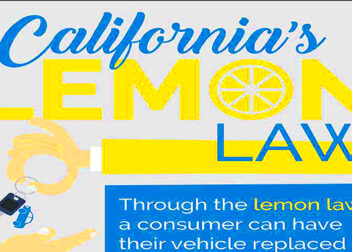What You Need to Know When Navigating the Kia Lemon Law
The Kia Lemon Law is in place to safeguard buyers and leasers of vehicles that prove to be troublesome despite several repair attempts. Picture this; you’ve spent your hard earned cash on a shiny new Kia only to discover it frequently malfunctions or presents persistent problems. This is where the Lemon Law comes into play providing a solution for disgruntled owners like yourself. It’s not merely about possessing a defective car; it’s about standing up for your rights and knowing how to recover your investment. While the legalities can be somewhat intricate familiarizing yourself with the essentials can greatly assist you in managing your claim.
When Your Kia Might Qualify as a Lemon

Wondering if your Kia fits the bill as a lemon? Its not solely about that annoying squeak or an engine light that refuses to budge. Here are a few telltale signs to watch out for:
- Repeated Repairs: If your Kia has had the same issue repaired multiple times, and the problem persists, it could be a sign that your car might be a lemon. For example, if your engine has been serviced three times for the same issue and it still doesn’t work properly, you’re likely in lemon territory.
- Extended Downtime: If your car has been out of service for an extended period due to repairs, this could also qualify. Typically, if the car has been in the shop for more than 30 days in total, you might have a case.
- Significant Defects: Issues that affect the vehicle’s safety, value, or use fall under this category. For instance, if your brakes are failing or your steering is unreliable, these are serious concerns.
Keeping a detailed record of every repair effort is vital. This documentation will play a key role in supporting your argument.
Steps to Take if You Think Your Kia is a Lemon
If you think your Kia might be defective, it’s important to follow the right procedures to increase your chances of a successful claim. Here’s a helpful strategy drawn from actual encounters:
- Document Everything: Keep detailed records of all repairs, including dates, services performed, and any communication with the dealership or manufacturer. This documentation is your proof that you’ve given the manufacturer a fair chance to fix the problem.
- Follow Up with the Dealership: Before making any legal moves, ensure that you’ve given the dealership a fair opportunity to resolve the issues. Sometimes, a good conversation with the dealer can lead to a solution without needing to escalate the matter.
- Seek Legal Advice: If the problem persists, consulting with a lawyer who specializes in lemon law cases can be beneficial. They can guide you through the legal process and ensure you’re taking the right steps.
- File a Claim: If your vehicle qualifies as a lemon, you can file a claim for a refund or replacement. The legal process might involve arbitration or a formal court case, depending on your situation.
Dealing with a car can be frustrating, but with the approach and support you can navigate the process and seek the justice you deserve.
How the Lemon Law Process Works
Navigating the lemon law process can be challenging, especially when you’re dealing with the stress of a defective vehicle. Here’s a simplified overview of how it typically operates. Think of it as having a roadmap for an intricate journey to ensure you don’t overlook any crucial twists along the way.
- Initial Complaint: The journey begins when you report the issue to the manufacturer or dealer. It’s crucial to ensure this complaint is documented thoroughly. This is where your detailed records of repairs and issues come into play.
- Repair Attempts: The law typically requires you to give the manufacturer a reasonable chance to fix the problem. This means multiple repair attempts for the same issue. The specific number of attempts can vary, so be sure to check local regulations.
- Notification of a Lemon: If the issues persist after reasonable repair attempts, you’ll need to formally notify the manufacturer or dealer that you believe your car is a lemon. This often involves a written notice detailing the problems and the steps you’ve taken.
- Arbitration or Mediation: Before going to court, many lemon law cases are resolved through arbitration or mediation. This is a less formal process where an impartial third party helps negotiate a resolution.
- Legal Action: If arbitration doesn’t resolve the issue, you may proceed with a lawsuit. This step involves presenting your case in court, where a judge will decide if you’re entitled to a refund or replacement.
While the journey may appear challenging keep in mind that its all about safeguarding your rights. Every stage is intended to provide you with an opportunity to address the matter at hand and achieve a just resolution.
What to Expect During the Buyback Process
The process of buying back a vehicle can bring a sense of relief while also feeling somewhat overwhelming. Picture it like arriving at the end of a journey – there’s excitement in reaching your destination but also a bit of confusion as you navigate through the final details. Here’s an overview of what you can typically anticipate:
- Inspection and Evaluation: Before the buyback is finalized, your vehicle will usually undergo a thorough inspection to verify its condition and the issues reported. This ensures that the buyback offer is fair and accurate.
- Refund Calculation: The buyback amount is typically calculated based on the vehicle’s purchase price minus a reasonable deduction for usage. This deduction accounts for the time and miles you’ve used the car before it was deemed a lemon.
- Return of the Vehicle: You’ll need to return the vehicle to the manufacturer or dealer. Make sure to return it in the condition it was when you first reported the issue, as any additional damage might affect the buyback offer.
- Documentation and Payment: You’ll receive a refund or replacement vehicle, depending on the agreement. Ensure all necessary paperwork is completed, including any agreements or contracts related to the buyback.
Stay connected with your lawyer during the journey to ensure things are going well. It’s similar to taking a test at the end of a lengthy program thorough but crucial for a positive result.
Common Mistakes to Avoid with Lemon Law Claims
When it comes to lemon law claims it’s not uncommon to stumble upon missteps that could impact your case. Based on my observations I’ve noticed a few common traps that can be sidestepped with a touch of mindfulness. Here’s a helpful guide to navigating away from these blunders.
- Ignoring Documentation: One of the biggest mistakes is not keeping detailed records. Your claim relies heavily on documented evidence of repair attempts, communications, and issues. Without this, proving your case becomes much harder.
- Skipping Repair Attempts: The law requires a reasonable number of repair attempts before you can file a claim. Skipping this step or not allowing the manufacturer a fair chance to fix the problem can weaken your case.
- Missing Deadlines: Lemon law claims often come with specific deadlines for filing complaints and notifications. Missing these deadlines can jeopardize your claim, so make sure to adhere to all timelines.
- Neglecting Legal Advice: Navigating lemon law claims can be complex. Avoid the mistake of going through the process alone; seek advice from a legal expert who specializes in lemon law to guide you through each step.
Steering clear of these blunders will improve your odds of achieving a favorable result. While the journey may be complex with the proper mindset and a keen eye for specifics you’ll be more equipped to handle it efficiently.
Legal Resources for Kia Lemon Law Cases
When it comes to handling a Kia lemon law situation having the resources can really make a difference. I can relate to how challenging it is to seek out trustworthy assistance based on my own experiences. Here’s a list of helpful legal tools that can steer you in the right direction, during this journey.
- Consumer Protection Agencies: Agencies like the Consumer Protection Division in your state can provide guidance on lemon law claims. They often offer resources and can help you understand your rights better.
- Lemon Law Attorneys: Finding an experienced lemon law attorney is crucial. They specialize in these types of cases and can offer invaluable advice and representation. Look for attorneys with a proven track record in lemon law claims for the best results.
- Online Legal Forums: Websites like Avvo or LegalZoom offer forums where you can ask questions and get advice from legal professionals. These platforms can be a good starting point for understanding your case better.
- State Lemon Law Resources: Each state has its own lemon law statutes and regulations. Reviewing your state’s specific lemon law resources can help you understand the local requirements and procedures.
- Manufacturer’s Customer Service: Sometimes, direct communication with the manufacturer’s customer service can resolve issues more quickly. They might offer guidance or solutions that are not immediately obvious.
By making good use of these resources you can access the assistance and knowledge necessary to navigate your lemon law claim smoothly. Keep in mind that you dont have to face this process alone; there is a support system of tools at your disposal to help you achieve the outcome you seek.
Tips for Successfully Navigating Your Lemon Law Claim
Navigating a lemon law claim can be tough, but with the strategy you can boost your odds of a positive result. Drawing from my own experiences and what I’ve seen here are some helpful suggestions.
- Keep Detailed Records: Every repair attempt, communication with the dealership, and any issues should be meticulously documented. These records will be your strongest evidence in proving that your Kia is a lemon.
- Follow the Law’s Requirements: Each state’s lemon law has specific requirements regarding repair attempts and notification. Make sure you’re aware of and follow these requirements closely to avoid pitfalls.
- Seek Professional Advice: Consulting with a lawyer who specializes in lemon law cases can be a game-changer. They can provide guidance on how to proceed and represent your interests effectively.
- Be Patient but Persistent: The process can be slow and frustrating. Stay patient but persistent in following up on your claim and responding to any requests for additional information.
- Negotiate Wisely: If offered a settlement, evaluate it carefully. Sometimes, it’s worth negotiating for a better deal, especially if you believe the initial offer doesn’t fully compensate for your troubles.
By implementing these strategies you can approach your lemon law case with assurance and increase your likelihood of reaching a favorable outcome. It’s a journey that requires persistence and attention to detail but with the mindset you can emerge victorious.
Frequently Asked Questions
Here are some commonly asked questions about the Kia lemon law that could assist in addressing concerns.
- What qualifies a Kia as a lemon? A Kia may be considered a lemon if it has persistent defects that affect its use, value, or safety, and if these issues remain unresolved after a reasonable number of repair attempts.
- How many repair attempts are required? Typically, if your Kia has been in for repairs at least four times for the same issue, or if it has been out of service for more than 30 days in total, it may qualify as a lemon. However, specific requirements can vary by state.
- What should I do if my claim is denied? If your claim is denied, review the reason for denial and consult with a lemon law attorney. They can help you understand why your claim was denied and advise on the next steps, which might include appealing the decision.
- Can I still file a claim if my warranty has expired? In many cases, you can still file a claim even if your warranty has expired, as long as the issues occurred during the warranty period and the repair attempts were documented.
- What can I expect in a settlement? In a settlement, you might receive a refund of the purchase price, a replacement vehicle, or a combination of both. The exact terms depend on the specifics of your case and the outcome of negotiations.
These frequently asked questions tackle worries and shed light on the lemon law procedure. If you seek clarification reaching out to a lawyer can offer tailored assistance.
Conclusion
Navigating a lemon law claim may seem challenging, but it’s important to keep in mind that you have rights and support to assist you along the way. Whether it’s grasping the intricacies of the lemon law or being aware of the buyback process, every step is geared towards ensuring you are treated fairly. It’s akin to reaching the point in a journey – it might have been difficult but the outcome makes it all worth it.
Having experienced the annoyance of a recurring car problem I can relate to the emotional and financial impact it brings. Yet by keeping yourself updated seeking guidance and carefully documenting everything you can approach the intricacies of lemon law claims more confidently. Keep in mind that you’re not by in this journey and there are support networks available to help you. Stay determined proceed with caution and you’ll be well on your way to effectively resolving your lemon law matter.


